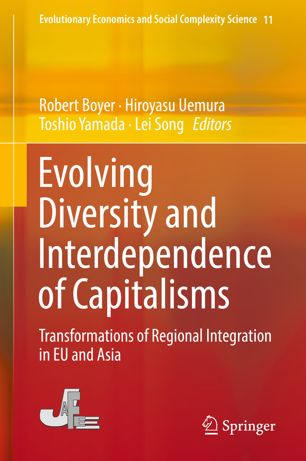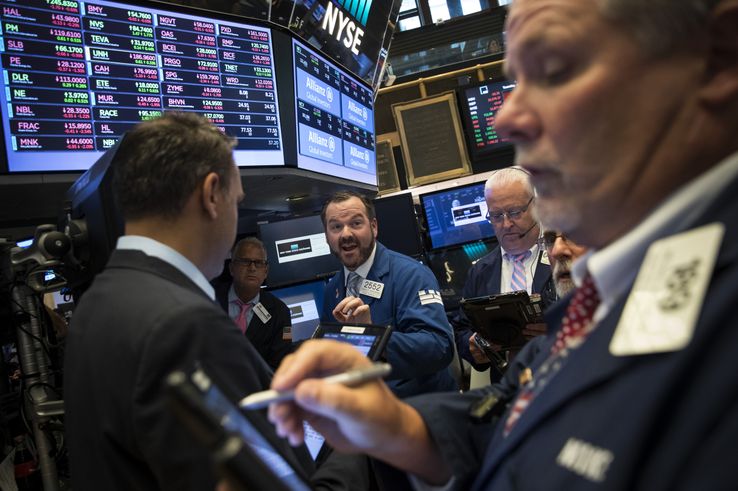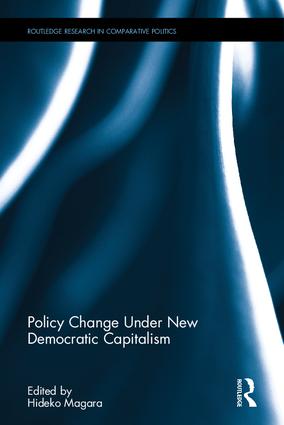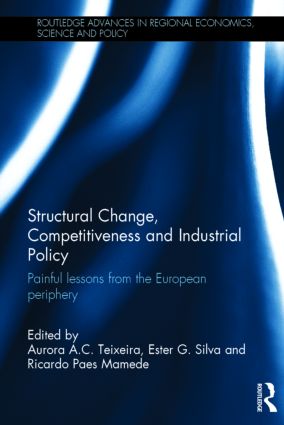Boyer Robert, Toshio Yamada, and Lei Song (Eds), Book, Part of the Evolutionary Economics and Social Complexity Science book series (EESCS, volume 11), Springer, Japan KK, part of Springer Nature 2018
Introduction
This book integrates three levels of political–economic analysis: first a comparative institutional analysis of the varieties of capitalism in both Europe and Asia, second a macroeconomic analysis of industrial structural change and economic dynamics of the national economies in Europe and Asia, and then an encompassing analysis of international production linkages and international financial instability which determine the long-term patterns of regional integration in Europe and Asia. The comparison of the European Union and ASEAN delivers some key conditions for a viable long-term regional economic integration to cope with contrasted capitalisms and growth regimes: either pragmatism in the choice of an exchange rate regime, or a form of fiscal federalism. The reader will also find a genuine analysis of the dynamism of the Chinese economy, a study on institutional changes and de-industrialization in Japan, and the increasing international production linkages among China, Japan, Korea, and ASEAN. It is shown how the enlargement of the European Union and the Euro triggered the diverging competitiveness and macroeconomic performances that led to the crisis of a six decades long economic and political process. This book is the result of long lasting Asian–European collaborative research. It is a milestone in the historical and comparative analysis along the régulation theory that aims at understanding the long-run transformations, renewed diversity and interdependence of capitalisms.
Mooc « C’est quoi l’éco ? » ENS de Lyon.FUN.Mai 2017, Entrevue, Séance 6.4- Les politiques économiques en France et en Europe. Robert BOYER, Alain TRANNOY
Entretien France Culture, Entendez-vous l’eco?, par Maylis Besserie, 26 Septembre 2017.
Deuxième jour de notre série consacrée à “l’esprit du capitalisme”.
Hier, nous nous sommes glissés dans la peau du sociologue Max Weber, auteur de l’ouvrage éponyme sur les origines de l’émergence du capitalisme et ses liens avec l’éthique protestante. Aujourd’hui, nous continuons à parler de capitalisme, mais en utilisant volontairement le mot au pluriel – pour pointer la diversité des systèmes économiques et politiques qu’il recouvre.
Nous allons parler de la théorie de la régulation et de son analyse en compagnie de l’une de ses grandes figures: Robert Boyer.
In Policy Change Under New Democratic Capitalism Edited by Hideko Magara, Chapitre 10,Routledge, , 2017, p. 202-222.
About the Book
Democratic capitalism in developed countries has been facing an unprecedented crisis since 2008. Its political manageability is declining sharply. Both democracy and capitalism now involve crucial risks that are significantly more serious than those observed in earlier periods. The notion of policy regimes has gained new significance in analysing the possibilities for a post-neoliberal alternative. Policy innovations directed towards an economic breakthrough require both political leadership and a new economic theory. The processes of political decision making have become quite distant from the public realm, and a limited number of economic and political elites exert influence on public policy.
This book examines, from a policy regime perspective, how developed countries attempt to achieve such a breakthrough at critical junctures triggered by economic crises. It initially assesses the nature of the present crisis and identifies the actors involved. Thereafter, it provides an analytical definition of a crisis, stressing that most crises contain within them the potential to be turned into an opportunity. Finally, it presents a new analytical design in which we can incorporate today’s more globalized and fluid context.
Table of Contents
I.Introduction
1.New Models of Democratic Capitalism and Policy Regime Change (Hideko Magara)
II.Models of New Democratic Capitalism
2.Crisis, Oportunity and Democracy in Contemporary Europe (Philippe Schmitter)
3.The Rise of the European Consolidation State (Wolfgang Streeck)
4.Cost of Democracy: Changing Aspects of Modern Democracy (Hiroshi Shiratori)
5.Institutional Change and Regime Crisis: A Critical Viewpoint on Neoliberalism (Toshio Yamada)
III.Comparative analyses
6.The Political-Economic Implications of De-industrialization with Varieties of Capitalism: An EU-Japan Comparative Analysis (Hiroyasu Uemura and Shinji Tahara)
7.Growth, Employment and Social Security Governance in the EU and Japan (Koji Fukuda)
8.The Diversity of the ‘Neoliberal Policy Regime’ and Income Distribution (Yuji Harada)
IV.Regime Competition in International Rivalry and Cooperation
9.Using Neofunctionalism to Understand the Disintegration of Europe (Philippe Schmitter and Zoe Lefkofridi)
10.From the Variety of Socioeconomic Regimes to Contemporary International Relations (Robert Boyer)
11.Balance-of-Payments Constraints, Change in Income Distribution, and Economic Growth in the Era of Globalization (Hiroshi Nishi)
About the Series
Routledge Research in Comparative Politics
Subject Categories
BISAC Subject Codes/Headings:
- POL024000
- POLITICAL SCIENCE / Public Policy / Economic Policy
- POL033000
- POLITICAL SCIENCE / Globalization
A world of contrasted but interdependent inequality regimes: China, United-States and European Union
Review of Political economy, Vol. 27, n° 4, October 2015, p. 481-517.
Abstract:
A number of contemporary paradoxes warrant explanation. First, in China, economic development has reduced poverty but dramatically increased inequalities. Second, the finance-led growth regime of North America has brought about a rupture with the Fordist Golden Age, causing a surge of inequality because of quite specific spill-over effects from the economy to policy. Third, the Eurozone crisis is often perceived as reflecting the limits of welfare states and the ideal of social equality, but some countries continue to exhibit an extended welfare system, moderate inequalities and a dynamic innovation and production system. To explain these paradoxes, this article applies a socio-economic approach based upon the concept of inequality regimes. Conventional interpretations stress the universality of the mechanisms that widen individual inequalities within each nation-state but reduce the hierarchy of national standards of living. This analysis, however, concludes that China, North America and Europe do not follow the same trajectory at all, since they have developed contrasting regimes of inequality that co-evolve and are largely complementary at the global level. This suggests an alternative to the hypothesis of an irreversible globalization of inequality.
AmiensBoyer3-5dec2014V1Présentation au Colloque « Crise de l’euro, effets discursifs et changements institutionnels : approches transdisciplinaires », CRIISEA, UFREG/Université de Picardie Jules Verne, 3-5 décembre 2014.
Analyseinstitutioninegalites1à Tunis (Ecole Supérieure de Commerce) à l’invitation de l’Ambassade de France à Tunis, 16 décembre 2014.
Entre loi du marché, intervention de l’Etat et pouvoirs croissants octroyés à Bruxelles: quel modèle économique pour l’Europe?
Dernière étape de notre semaine consacrée aux capitalismes. Une émission préparée par Tiphaine de Rocquigny , CultureMonde le 30.10.2014 – 11:00
Avec nous pour en discuter:
Robert Boyer, éminent économiste, il est considéré comme l’un des artisans de l’Ecole de la régulation avec Michel Aglietta.
Olivier Truc, depuis Stockholm, correspondant en Suède pour Le Monde, depuis une vingtaine d’années.
& Petros Markaris, auteur, scénariste, dramaturge grec, auteur d’une « trilogie de la crise », une série de polars dont les personnages principaux sont la Grèce..et la crise. Il a répondu, depuis Athènes, aux questions de Tiphaine de Rocquigny.
Thème(s) : Information| Economie| Europe
http://www.franceculture.fr/player/reecouter?play=4939838
Chapitre 1 in Structural Change, Competitiveness and Industrial Policy: Painful , Lessons from the European Periphery [Format Kindle], Sous la direction de Aurora A. C. Teixeira, Ester Silva and Ricardo Mamede, Routledge, 2014
Working Paper n° 67, 2014, Working Paper Series, desiguALdades.net, Freie Universität, Ibero-Amerikanisches Institut, Berlin.



